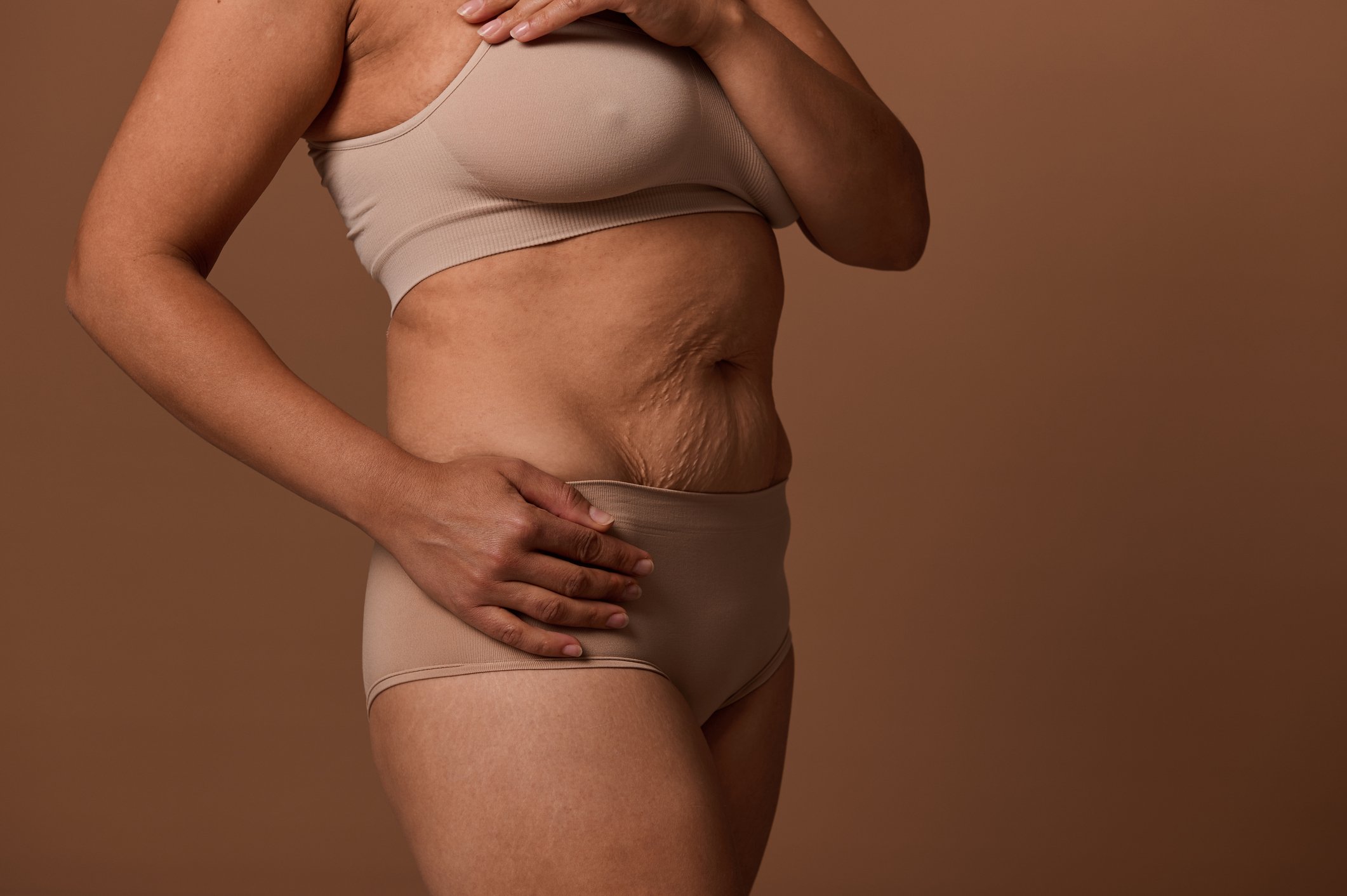This article has been medically reviewed by both Dr. Eloise Elphinstone, NHS GP and Dr.Odinaka Nwodo, NHS GP.
A proven solution that many GPs recommend
MUTU aids postpartum recovery and pelvic floor health. It’s a proven solution that many GPs recommend. So, why isn’t it accessible to all through the NHS? When your NHS doctor recommends a programme like MUTU, you may wonder why it’s not free on the NHS.
The answer lies not in quality, lack of evidence or GPs’ recommendations. It is down to NHS funding, and the extent to which women’s health is prioritised.
Why hasn’t the NHS commissioned MUTU yet?
MUTU isn’t free on the NHS because NHS England or individual ICBs* haven’t yet commissioned the service. The MUTU programme meets compliance and evidence-based standards. An independent report on MUTU by Health Innovation KSS* showed that doctors want to refer patients, that patients would benefit from its inclusion in NHS services, and that there is a cost-benefit for the NHS to do so.
The decision whether to fund programmes like MUTU comes down to prioritisation decisions made within the NHS. Currently, women’s health issues are underfunded and not given the attention they deserve. Dr. Eloise Elphinstone, a GP and women’s health expert, says that GPs want to offer effective, non-invasive solutions. But, the NHS’s limited resources mean many of these services aren’t currently available for free.
Why GPs recommend paid solutions like MUTU
Even though MUTU isn’t free on the NHS, many GPs still recommend it. The NHS has limited resources in areas such as specialist women’s health physiotherapy. There are few free, at-home options for women’s health, especially postpartum recovery. Waiting lists can be long, and some women need immediate support.
“As an NHS GP, I recommend MUTU because there isn’t a similar programme available on the NHS for at-home use. We can refer women to NHS Women’s Health physiotherapists, but there’s often a long wait. MUTU provides quick, easy support. It helps avoid surgery and other invasive treatments.” Dr Eloise Elphinstone.
GPs are not suggesting MUTU because they have a financial or other incentive to do so, but simply because it is often the most practical and effective option for their patients. MUTU allows women to take control of their recovery without waiting months for appointments.
MUTU’s evidence and compliance
MUTU has dedicated significant investment to ensure it meets compliance and governance standards. It is evidence-based and deemed safe. Doctors support it. Independent reports say it could save the NHS money, and evidence suggests it would reduce the need for costly, invasive treatments later.
So, why hasn’t it been made available for free on the NHS? Simply put, it’s about where NHS funding is allocated. Until more funds go towards women’s health, programmes like MUTU remain out of reach for many women across the UK who rely on the NHS.
The bigger problem: Women’s health is underfunded
The unavailability of MUTU on the NHS highlights a bigger issue: women’s health services are underfunded. Postpartum care, pelvic floor therapy and menopause treatments receive less attention and resources than other health needs.
Women’s health issues are often not prioritised, leading to significant gaps in care. Conditions like pelvic floor dysfunction, endometriosis, PCOS (polycystic ovary syndrome) and menopause-related issues have frequently received less research, education and funding. This has resulted in delayed diagnoses, limited treatment options and significant gaps in women’s healthcare.
It’s not just the NHS that is under-funding women’s health – this is a private investment issue too. Despite increasing demand for female health solutions, investment in Femtech accounts for less than 2% of health tech funding.
Not just postpartum care
Controversy and challenges* with HRT (Hormone Replacement Therapy) are another example of what happens when women’s health is overlooked. Many women have turned to private clinics or alternative treatments because they feel the NHS does not provide adequate support. Some women feel that their healthcare professionals were either unhelpful or uninformed. But the real problem is a lack of funding and prioritisation for these services. The lack of information and research is not the fault of GPs and other healthcare professionals, it’s about a system that doesn’t prioritise women’s health as it should.
Why solutions like MUTU are recommended by doctors
Due to limited access to specialist pelvic health resources and waiting list restrictions on the NHS, private solutions like MUTU are becoming more common. Understandably, many in the UK find it frustrating to pay for healthcare. MUTU is working to make its programme more accessible through partnerships and possible NHS collaborations. To ensure that people who can’t pay, don’t have to pay for essential healthcare, the system needs to change.
How much does MUTU cost?
The MUTU system programme offers membership at £99 per year or £21 per month, making it a cost-effective option for many for postpartum recovery. A 10-day free trial allows users to try before they buy. This compares to traditional gym memberships, where costs range from £30 to £100+ per month. With specialized, at-home exercises for core and pelvic health, as well as expert-led community and support, MUTU provides safe, targeted benefits at a relatively low price.
Why not just Sell MUTU to those who can afford it?
The NHS doesn’t offer MUTU for free (yet). Not because it doesn’t work or has yet to meet the required standards. Women’s health is not prioritised enough within NHS funding.
GPs will continue to recommend MUTU as an effective solution for postpartum issues.
But let’s remember, this is a policy and funding issue, not a failure of the medical professionals who work within the system. The NHS and MUTU are both working towards improving women’s health services and outcomes. The real challenge is ensuring that everyone has access to care, regardless of their ability to pay.
For more on research and compliance, visit MUTU Evidence.
*Further Reference:
- MUTU Evidence: Report by Health Innovation Kent Surrey and Sussex 2024
Health Innovation KSS commissioned Unity Insights to evaluate the value and impact of MUTU within existing NHS maternity pathways and real-world implementation. The evaluation found that the MUTU System led to a marked reduction in POP (pelvic organ purpose), UI (urinary incontinence) and dyspareunia (pain with intercourse) in NHS patients. It also concluded that there was a net cost benefit for the NHS in making MUTU available to women. Read more on the HI KSS website here.
- Understanding how NHS services and treatments are funded to be free for everyone
In England, services for the NHS are commissioned mainly by two organisations:
1. NHS England
NHS England commissions ‘specialised services’, like treatments for rare conditions, and also oversees primary care, such as GPs and dentists.
2. Integrated Care Boards (ICBs):
ICBs are local groups responsible for organising most health services in their area. This includes things like hospital care, community health, and mental health services. ICBs replaced Clinical Commissioning Groups (CCGs) in 2022.
Local authorities also play a role in commissioning public health services like sexual health clinics and drug or alcohol support. These organisations often work together to meet the healthcare needs of local communities.
- Understanding the recent HRT controversy regarding high oestrogen dosing
Women’s health issues, particularly those related to menopause, are often underfunded, under-researched, and not prioritised in the NHS, leading to inadequate care for women. This has been highlighted in the controversy surrounding Dr Louise Newson, a prominent menopause specialist.
The British Menopause Society and the Care Quality Commission (CQC) have raised concerns about the lack of robust, evidence-based practices in some of Newson’s treatments, suggesting that women might not always be receiving the best care. However, defenders of Dr. Newson argue that she is raising much-needed awareness and providing support for a vastly underserved group, pointing out that menopause care has long been neglected within the NHS. Celebrity menopause campaigner Davina McCall responded highlighting the lack of information and support which leads women to seek alternative treatment. The debate reflects broader issues of gender disparity in healthcare funding and research, with conditions affecting women often receiving less attention than they deserve.
- What is the Women’s Health Strategy for England?
The Women’s Health Strategy for England is a comprehensive 10-year plan aimed at addressing gender health inequalities. It seeks to improve the health and well-being of women and girls, with a focus on menstrual health, fertility, menopause, and mental health. The strategy emphasizes better access to services, greater inclusion of women’s voices in healthcare decision-making, and research into women-specific health conditions, while also tackling workplace support and the impact of violence on women’s health.
You can view the full Women’s Health Strategy for England here.
The Women’s Health Strategy for England has made initial strides in raising awareness and improving services such as HRT access, but full implementation is still in progress. With £25 million allocated towards women’s health hubs, the strategy aims to offer more integrated services. However, critics have raised concerns about the lack of specific new funding for some areas, vague metrics for success, and slow progress in addressing health inequalities. For further exploration of the strategy and its current impact, see:
NHS England on Women’s Health Hubs
The BMJ’s analysis of the strategy’s challenges
The Women’s Organisation report on 2024 women’s health priorities











